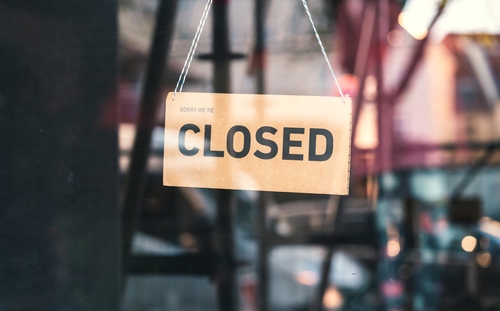Owed money by an insolvent company? Here’s what to do next.
As the number of companies entering into an insolvency process soars, the chances of your business being caught in the crossfire is now higher than ever before.
The latest figures from the Insolvency Service show there were 4,175 creditor voluntary liquidations - where directors decided the business was no longer viable and chose to place it into liquidation without a formal court order - in the fourth quarter of 2021, accounting for most insolvency cases.
This, say the government, was the highest quarterly number of insolvencies since records began in 1960 and coincided with 'the phasing out of measures put in place to support businesses during the coronavirus pandemic'.
What is insolvency?
Insolvency is usually when a company is unable to repay its debts. It can be a complicated process involving various areas of the law including employment, property, tax and family.
What happens when a company announces a creditor voluntary insolvency?
This is basically a company holding up its hands and declaring itself insolvent, either on the basis that it is unable to pay its debts as they fall due or on the basis that it is balance sheet insolvent which means the company's liabilities outweigh its assets.
The members of the company begin the process, normally following pressure from creditors, and a liquidator is appointed to sell the assets of the business and make a distribution to creditors.
What are my options if I'm owed money by an insolvent or soon-to-be insolvent company?
As many companies now find themselves in a precarious financial situation recovering from the pandemic, more options are available if a company appears to be insolvent.
This is because the first set of measures introduced by the government to protect many businesses because of Covid-19 expired on 30 September 2021.
The restrictions have been partially lifted, although measures remain in place until 31 March 2022 for smaller business debts.
As a result, if the outstanding sum you are now owed totals £10,000 or more (an increase from £750 previously) you can now present a winding-up petition against the debtor company even if the pandemic is cited as the reason for non-payment.
In addition to a creditors voluntary liquidation, other insolvency options include administration and compulsory liquidation and a Company Voluntary Arrangement - a more informal process that involves creditors negotiating an arrangement or compromise with a debtor company under the supervision of an insolvency practitioner.
How we can help
Wards Solicitors' specialist Disputes Team can advise on a whole raft of insolvency and debt recovery issues including negotiating repayment agreements with your debtors or creditors, understanding the insolvency process and options, helping you move as quickly as possible and next steps when dealing with an insolvent company.
Get in touch
Solicitor Sophie Driscoll has particular experience in contentious insolvency matters acting for individuals, companies, directors, creditors and office holders on a wide range of issues arising from the currently fast changing legislation around companies and insolvency.
Email: Sophie.Driscoll@wards.uk.com
Call: 01934 413535


